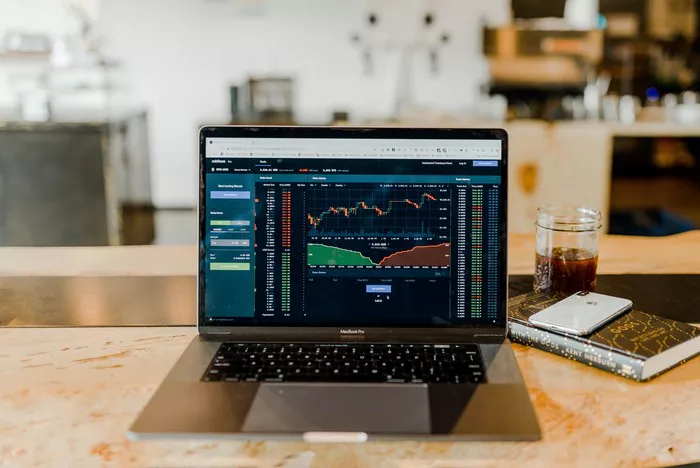Index futures in the stock market are powerful financial instruments that provide traders and investors with unique opportunities to speculate on the direction of entire stock market indices. These futures contracts enable participants to hedge against market risks, diversify their portfolios, and capitalize on both rising and falling markets.
What Are Index Futures in the Stock Market?
Index futures in the stock market are standardized financial contracts that allow traders to speculate on the future value of a specific stock market index. These contracts are agreements to buy or sell the underlying index at a predetermined price and date in the future. The most commonly traded index futures include the S&P 500, Nasdaq 100, Dow Jones Industrial Average, and Russell 2000, among others.
Features of Index Futures in the Stock Market
Index futures contracts share several key features:
Standardization: Index futures are standardized in terms of contract size, expiration date, and tick size. This standardization simplifies trading and enhances market liquidity.
Leverage: Futures contracts are highly leveraged instruments, meaning that traders can control a significant position with a relatively small capital investment. This leverage can amplify both gains and losses.
Expiration Date: Each index futures contract has a specific expiration date. Upon expiration, traders must either settle the contract by delivering the underlying index or offset their position with an opposing trade.
Margin Requirements: To trade index futures, participants must maintain a margin account with their brokerage. Margin requirements vary but are typically a fraction of the contract’s total value.
Price Movements: Index futures move in lockstep with the underlying index’s value. If the index rises, the futures contract increases in value, and vice versa.
Market Hours: Index futures markets operate nearly 24 hours a day, allowing for flexibility in trading across different time zones.
Uses of Index Futures in the Stock Market
Index futures serve various purposes in the stock market:
Speculation: Traders speculate on future market movements, aiming to profit from both upward and downward price swings in stock indices.
Hedging: Investors use index futures to hedge their existing stock portfolios. By taking a position opposite to their portfolio, they can mitigate potential losses in declining markets.
Portfolio Diversification: Index futures provide an avenue for diversifying investment portfolios beyond individual stocks and bonds. They offer exposure to the broader market, reducing specific stock risk.
Arbitrage Opportunities: Traders seek arbitrage opportunities by exploiting price disparities between index futures and the underlying index. This helps maintain price equilibrium in the markets.
Market Sentiment Analysis: Changes in the open interest and trading volumes of index futures contracts can offer insights into market sentiment and potential future price movements.
Benefits of Index Futures in the Stock Market
Trading index futures offers several advantages:
Liquidity: Major index futures markets are highly liquid, allowing for easy entry and exit from positions.
Diversification: Index futures provide diversification benefits, reducing the risk associated with individual stocks.
Hedging: Investors can use index futures to protect their portfolios against market downturns.
Leverage: Futures contracts offer significant leverage, amplifying potential profits.
Efficiency: Futures markets are efficient, reflecting current market conditions and expectations.
Accessibility: Index futures are accessible to a wide range of market participants, from retail traders to institutional investors.
Risks of Index Futures in the Stock Market
Despite their benefits, index futures come with inherent risks:
Leverage Risk: The high leverage of futures contracts can lead to substantial losses if the market moves against a trader’s position.
Market Risk: Index futures are highly sensitive to market fluctuations, making them susceptible to rapid price swings.
Margin Calls: If a trader’s account balance falls below the required margin level, they may receive a margin call and be forced to either add more capital or close out their position at a loss.
Expiration Risk: Traders need to monitor expiration dates and manage expiring contracts to avoid physical delivery or unwanted cash settlement.
Complexity: Futures trading can be complex and may require a significant understanding of market dynamics and risk management strategies.
Lack of Diversification: While index futures offer diversification benefits, overreliance on them without other asset classes can expose a portfolio to concentration risk.
Trading Strategies for Index Futures in the Stock Market
Successful trading of index futures involves implementing sound strategies:
Trend Following: Traders may use technical analysis to identify and follow prevailing market trends, going long in uptrends and short in downtrends.
Mean Reversion: This strategy involves betting that prices will revert to their historical mean. Traders identify overbought or oversold conditions and trade accordingly.
Pairs Trading: Pairing an index futures contract with a correlated asset, such as a single stock or an exchange-traded fund (ETF), can create arbitrage opportunities.
Hedging: Investors use index futures to hedge against portfolio losses. A long index futures position can offset losses in a declining market.
Volatility Trading: Traders may profit from changes in market volatility by using index futures options or VIX futures, which track market volatility.
Conclusion
Index futures in the stock market play a pivotal role in modern finance, offering a range of opportunities for traders and investors. Understanding their features, uses, benefits, and risks is essential for anyone considering entering the world of futures trading. Whether you aim to speculate on market movements, diversify your portfolio, or hedge against market risks, index futures can be a valuable tool when used wisely and with a thorough understanding of the market.


